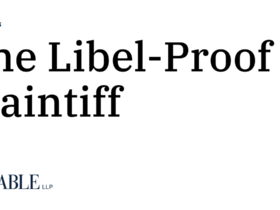As of 2024, most Australians use some type of social media. As the rise of social media increases, it has resulted in a risk of online defamation. Online abuse can come in many forms, and if you are going through one, you can contact a social media defamation lawyer. But before seeking legal help, it is crucial to know the kind of bullying and abuse you are facing.
While facing such situations, one question continuously crops up in our mind – what’s the difference between internet abuse and defamation? To answer this tricky question, we are presenting you with this blog to try to chalk out the difference between the two. Below, we will also discuss what you can do if this happens. So, let’s continue reading to find out.
What is defamation?
It is a civil measure determined by the judiciary system created to maintain freedom of speech and safeguard a person’s reputation. It is based on a body of law and thresholds different from cyber abuse schemes. In Australia, defamation law is different according to the state and legislation.
Despite this, Model Defamation Positions were agreed upon in 2005, and each state and territory agreed. This means that similar approaches are taken wherever possible. If you are facing such issues, you are not alone; the best lawyers for defamation of character will assist you in building up a strong case.
What is internet abuse?
The threshold is high in this case and split into two parts. One, it must be targeted toward causing severe harm, and two, it must be harassing, offensive, or menacing. This harm will be serious if it endangers a person’s life. If somebody finds something offensive or disagreeable, it is not a clause. However, eSafety states that every situation is unique, and they are committed to helping all individuals.
The difference between defamation and internet abuse
The new legislation and defamation law of eSafety are designed to provide ‘harm minimization’ by removing harmful content. For the commissioner to act on a report of cyber abuse, it must be “seriously harmful.” This has a higher threshold than the bullying scheme for minors because it is presumed that adults have greater resilience than children.
For the safety executive to search or go through a harmful comment, it must target an adult citizen and be both:
- Intended to cause serious harm
- Harassing or offensive in all situations
The eSafety scheme is not created to arbitrate the falsity of a statement on the internet. However, in certain situations, the defamatory material posted can also add up to adult cyber abuse. If the statement is intended to cause serious physical or psychological harm, it can be considered offensive.
Where can I file a lawsuit?
You can file a lawsuit in the state of the federal court that has the authority for jurisdiction. You can file the case where you live or where the defender lives. Apart from this, you can also file it in the area where you have experienced loss or damage due to the defamation.
Online Safety Act 2021
Australia’s Online Safety Act was strengthened with the revision of this act in 2021, which commenced in January 2022. The legislation addressed gaps in the Online Safety Act 2015 framework, which boosted the Commissioner’s examining and implementation powers. It safeguards against cyber abuse of children or adults and image-based abuse.
Under this law, the online platform must remove the content within 24 hours. If you have been abused in this way, you can press charges against the poster and the provider of service on the platform it was posted on. It is applicable but not limited to the following services:
- Social media platforms like Facebook, Instagram, etc.
- Email and instant messaging like WhatsApp or Google Outlook.
- Search engines like Bing or Google.
- Online gaming platforms.
- Online dating platforms.
- ISPs.
- App distribution.
- Data hosting.
Conclusion
In conclusion, we would like to say that defamation and internet abuse a complicated areas of law, especially in the changing online landscape. You can contact Defamation Lawyers Perth, WA, to fight for you in court.They have a comprehensive knowledge of spreading false rumors in law and can manage the matter so that decisions can be taken unbiasedly.















